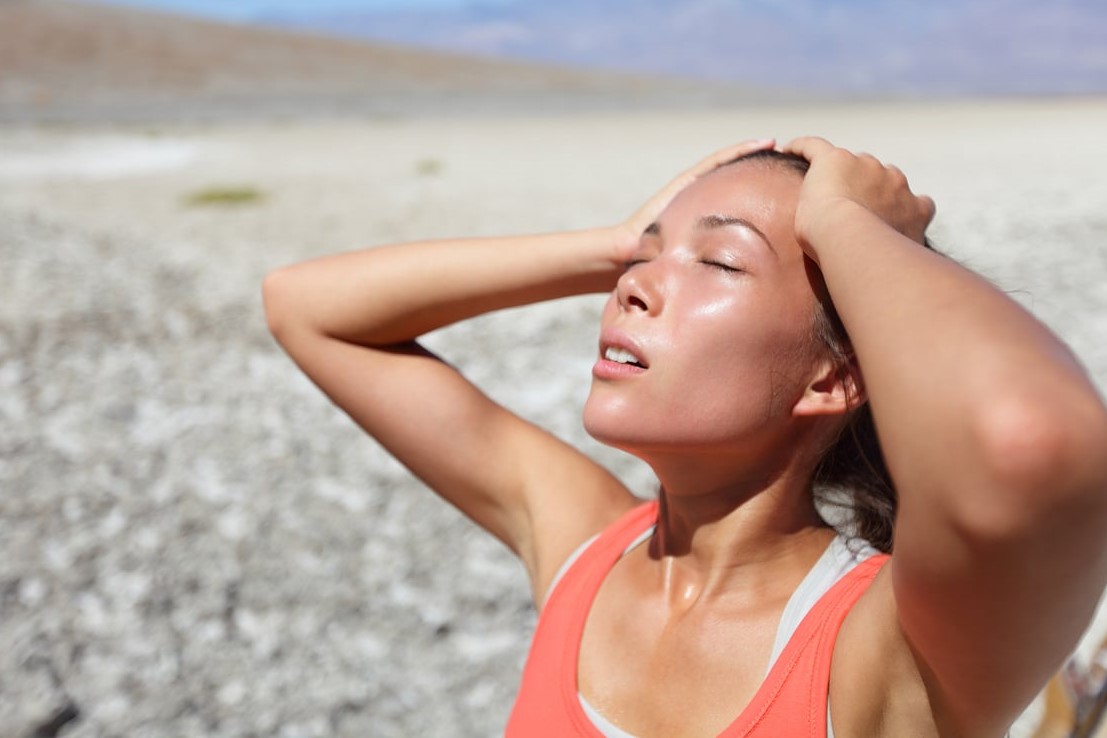
First aid for dehydration: knowing how to respond to a situation not necessarily related to the heat
Dehydration is normally linked to the summer heat, and it is in fact in that season that we run the greatest risk of fluid depletion. But this is not always the case, and knowing how to act in first aid is necessary in a whole series of situations
Learn more about this summer’s biggest threat and what you can do to prevent it from happening.
What is Dehydration
Dehydration is the absence of a sufficient amount of water in the human body.
It happens when the body loses more fluids and electrolytes it can produce.
Dehydration is a common effect of heat-related illnesses, such as heat exhaustion and heatstroke.
But it can also occur during wintertime.
Other common factors that contribute to this condition are high fever and vomiting and taking certain medications (diuretics).
One can also become dehydrated by simply not drinking enough fluids, particularly water.
Many people will be surprised at how common this condition is.
The human body needs more than just a few glasses of water. It requires electrolytes – which contains sodium, calcium, potassium, and chloride – to function well.
These electrolytes are responsible for sending signals between the brain and organs. It also helps in maintaining adequate blood volume.
Without proper pH levels and electrolyte balance, a person can experience headaches, fatigue, and muscle pain.
FIRST AID TRAINING? VISIT THE DMC DINAS MEDICAL CONSULTANTS BOOTH AT EMERGENCY EXPO
How To Know if Someone is Dehydrated
The common signs of dehydration include:
- Extreme thirst
- Headache or dizziness
- Dry, irritated, or sensitive skin
- Muscle pain or cramps
- Less frequent urination
- Dark-coloured urine
- Fatigue
- Confusion
Dehydration can lead to serious health complications.
If left unrecognized, it can result in health injury, urinary and kidney problems, and low blood volume shock.
First Aid Treatment for Dehydration
To kick start treatment, begin with understanding the vital connection between electrolytes and your body.
Being able to recognize the signs and symptoms is the key to providing proper first aid care.
- If signs of severe dehydration are present, call for emergency medical help as soon as possible. Severe dehydration is an emergency that can lead to life-threatening situations if not treated immediately. Delay in treatment may result in coma or, worse, death.
- While waiting for EMS to arrive, move the person to a cool area. Have the person lie down to help decrease body heat and prevent fainting.
- Apply cool and wet clothes on the critical areas of the person’s body. These include the neck and face area, armpits, inner thighs, and wrist. The cold application allows the body to avoid the possibility of heatstroke.
- Hydrate the person by giving sips of water or an electrolyte drink. Assist them in drinking to avoid sudden massive intake of fluid, which can cause vomiting.
You can essentially treat mild and moderate dehydration without visiting the ER. However, it is a good idea to follow up with your doctor after experiencing dehydration symptoms.
Dehydration: Prevention
Preventing dehydration is way easier than treating it.
Drink as much water as you can, especially when going to spend time outdoors.
Make sure to hydrate before doing any work or physical activity.
If the temperature is hotter than a typical sunny day, try to avoid staying outdoors for a more extended period.
Avoid sugar and caffeinated drinks and opt to drink water instead.
One essential tip to know if you are dehydrated is to check the colour of your urine from time to time.
If the colour appears to be a darker shade, it means you need to do more water intake.
Read Also:
Emergency Live Even More…Live: Download The New Free App Of Your Newspaper For IOS And Android
Colour Changes In The Urine: When To Consult A Doctor
The Colour Of Pee: What Does Urine Tell Us About Our Health?
Summer And High Temperatures: Dehydration In Paramedics And First Responders


